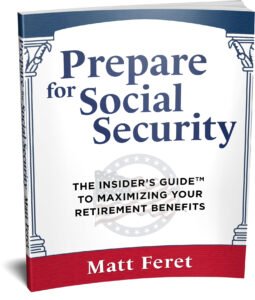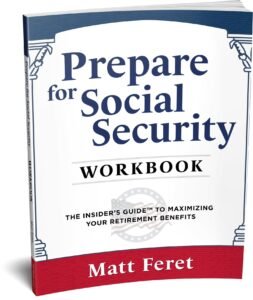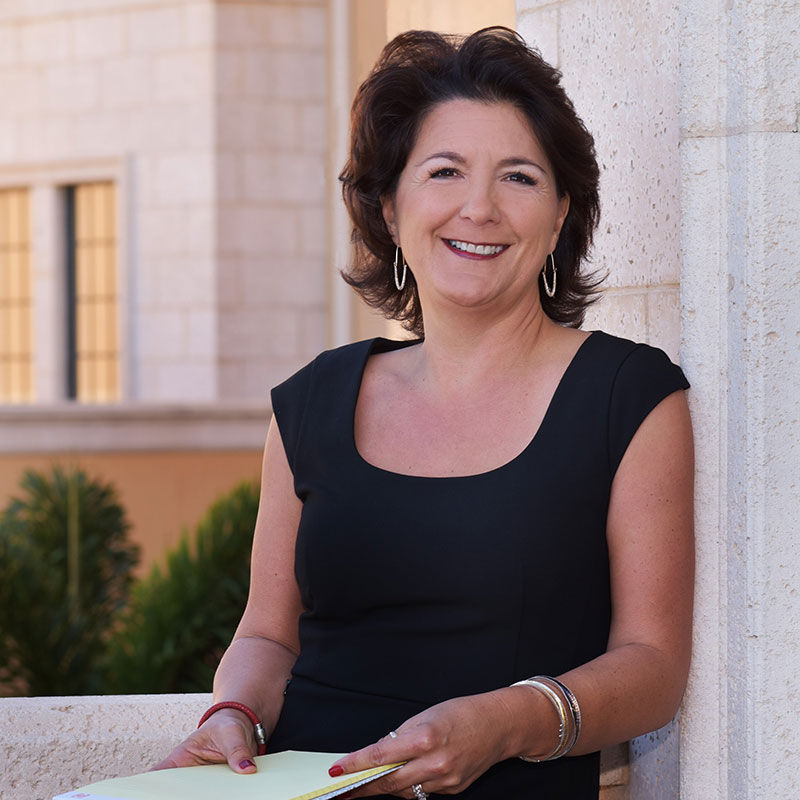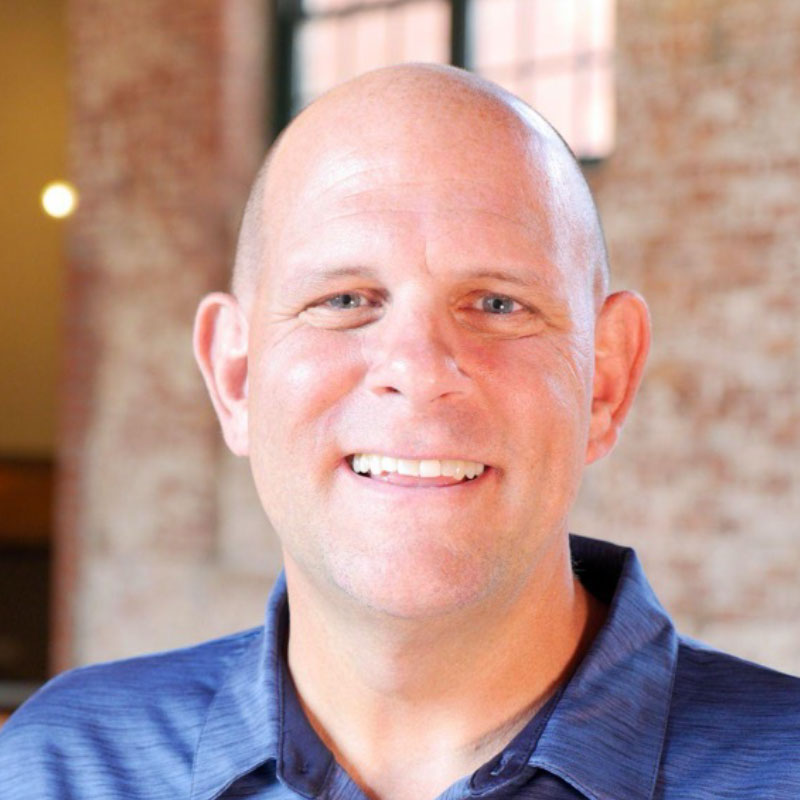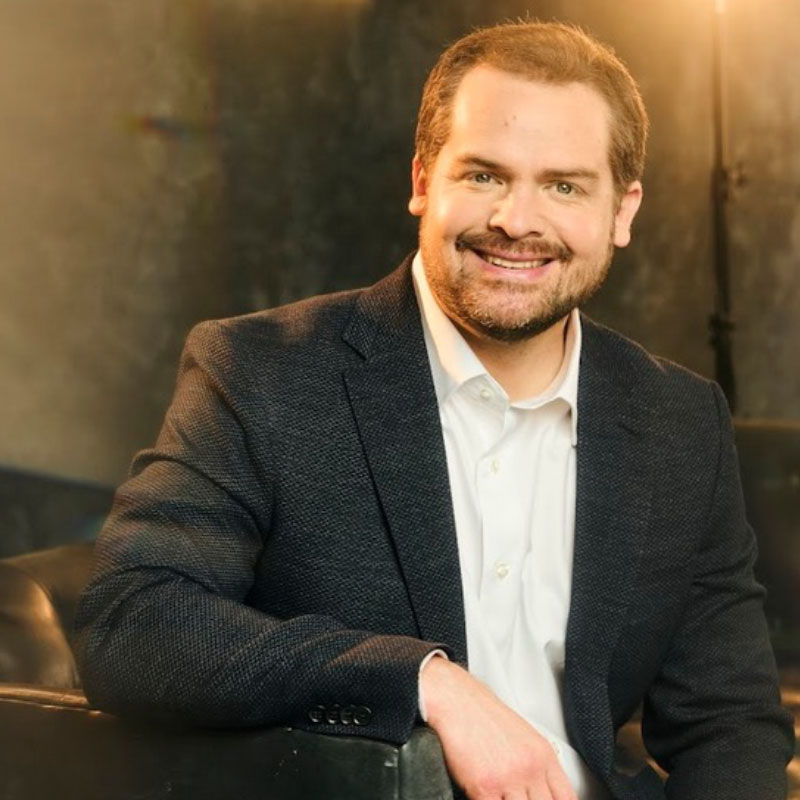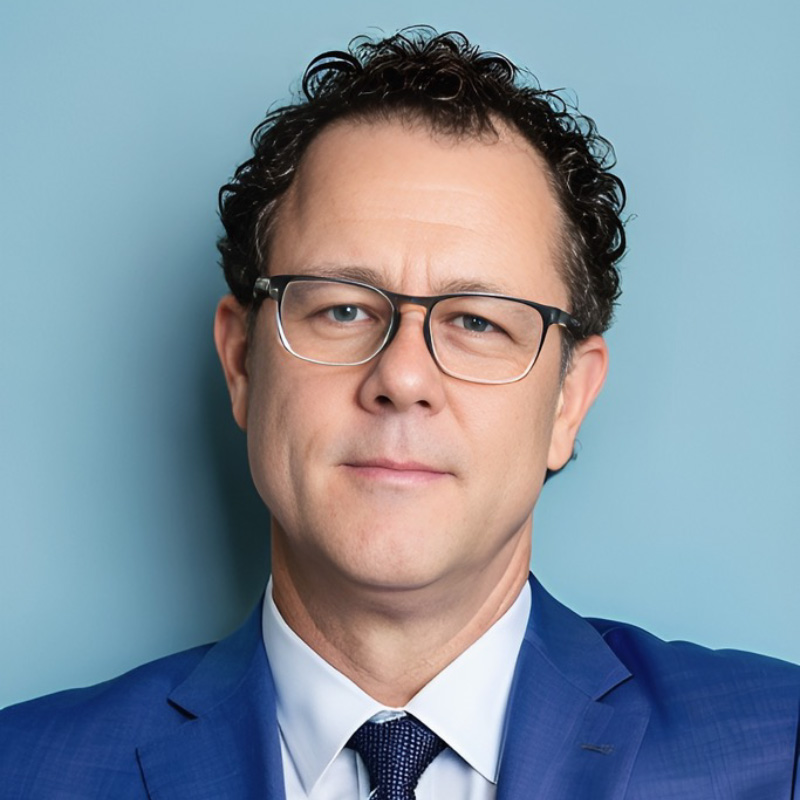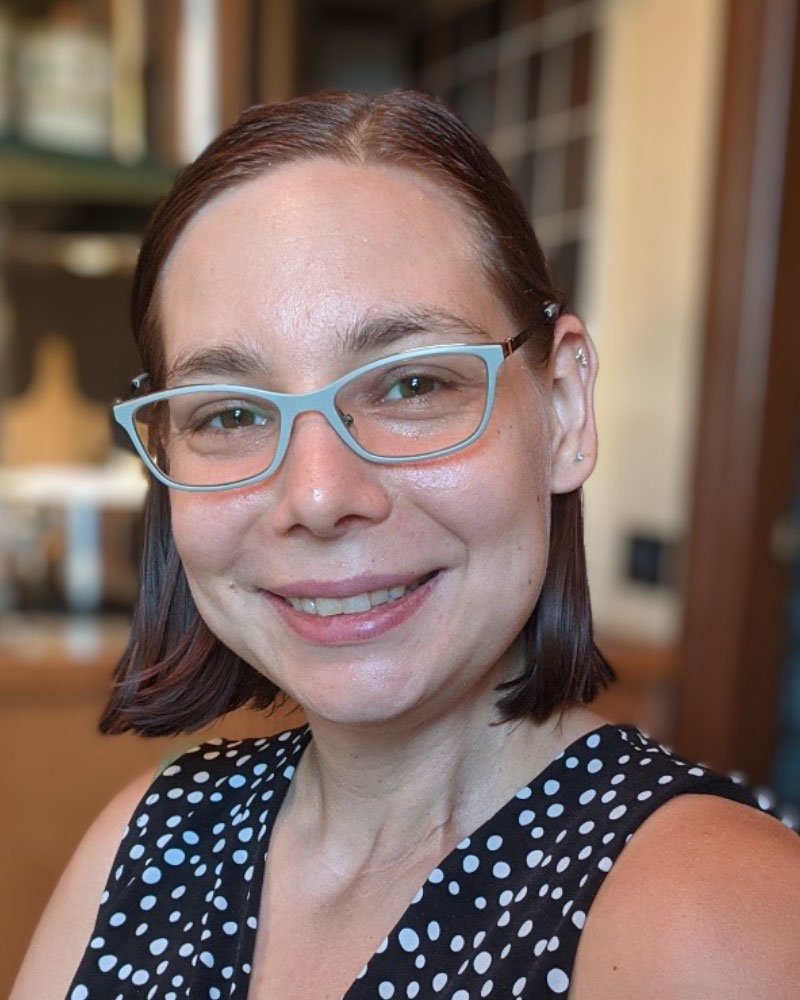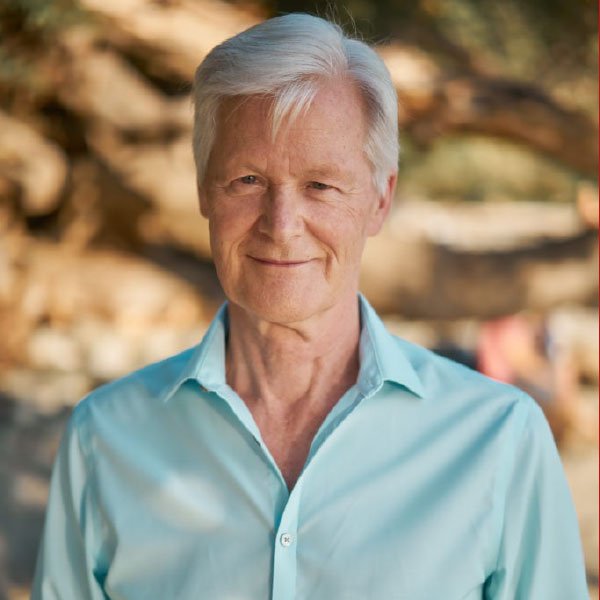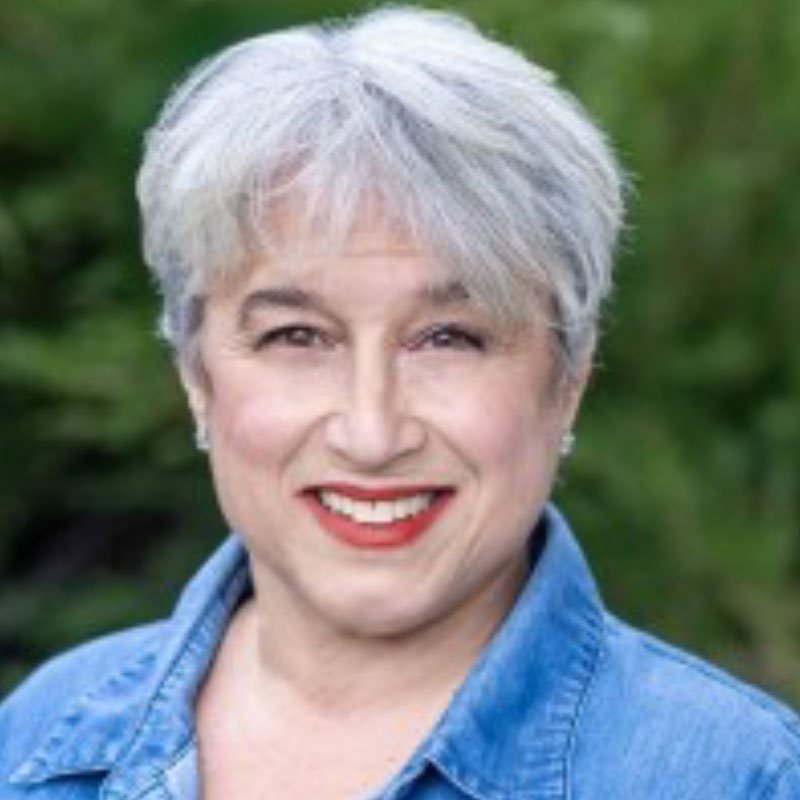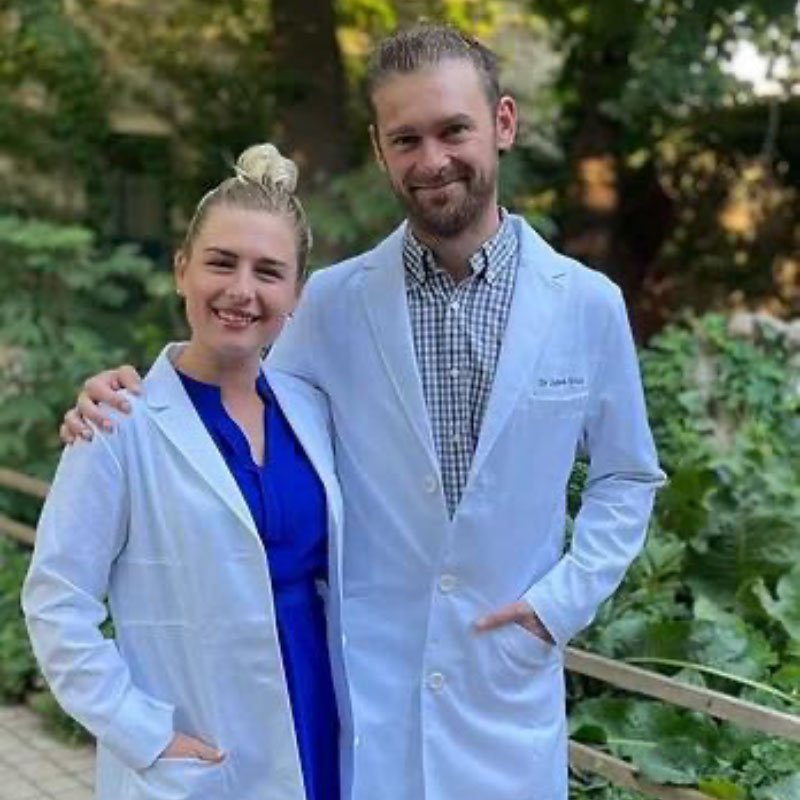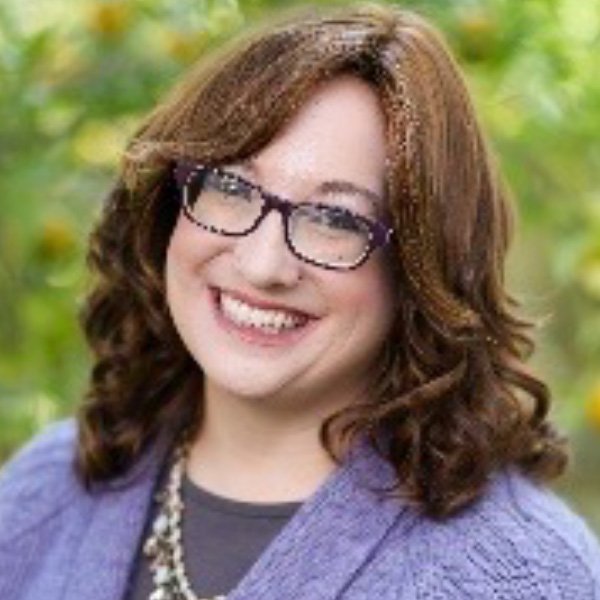#077
Share This:
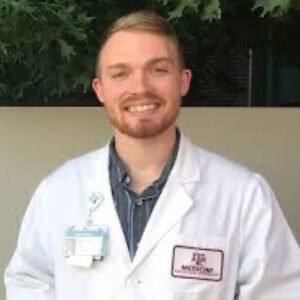
In this episode of The Matt Feret Show I interview Logan DuBose, a resident physician and co-founder of Olera Inc., a start-up seeking to provide social support to older adults navigating the American healthcare system. We discuss Logan’s experience in the medical field and issues he identifies as negatively impacting the wellness of older adults, such as understaffed medical and allied health professions and a culture of insufficient follow-ups to medical care.
If you enjoyed this episode of The Matt Feret Show, you may also enjoy:
Medical Gaslighting, Disability, and Chronic Pain with Activist and Author Kelly Mendenhall, M.S.
Caregiver Burnout: Prioritizing Self-Care with LCSW Iris Waichler
The Cost of Medical Care: A Deep Dive into Medical Bills with Braden Pan
Listen to the episode on Apple Podcasts, Spotify, Deezer, Podcast Addict, Stitcher, Google Podcasts, Amazon Music, Alexa Flash Briefing, iHeart, Acast or on your favorite podcast platform. You can watch the interview on YouTube here.
Brought to you by Prepare for Medicare – The Insider’s Guide book series. Sign up for the Prepare for Medicare Newsletter, an exclusive subscription-only newsletter that delivers the inside scoop to help you stay up-to-date with your Medicare insurance coverage, highlight Medicare news you can use, and reminders for important dates throughout the year. When you sign up, you’ll immediately gain access to seven FREE Medicare checklists.
Quotes:
“I think that we've seen amazing response from individuals on our social media platforms when we talk about the brighter side of aging, what it could be and what it has been until recently. Honestly, until recent history, people lived with their families for their whole life, and they took care of their elderly, and the elderly were wise decision makers… In America, we're fragmented, and we've lost that.”
“The United States spends more money than any other country on healthcare, and they're one of the worst, if not the worst of developed countries and outcomes. When you hear that a couple times, you kind of get immune to it, but then you kind have to sit back and think about that. And that's what the first year of residency really made me do. I asked myself, why is that the case? And the staffing issue of healthcare workers is why I believe we have the poorest outcomes.”
“If I had to leave you with one thing, I think that one of the biggest issues and the ways that we can help caregivers is to respect and invest in more healthcare workers and continue to support one another in the meantime until the healthcare workforce can catch up to the need. And the ways that we can support one another is to share resources, caregiver to caregiver. That's the most important. Your churches, your volunteer groups, your families, your friends. We have to keep doing that until the workforce can catch up. So, thank you, all of you caregivers for taking care of our patients when we can't, and we're going to try and catch up as fast as we can.”
#077
Selected Link from the Episode:
Host’s Links:
All Things Medicare: prepareformedicare.com
Decoding Social Security: prepareforsocialsecurity.com
My Written Works on Amazon: www.amazon.com/stores/Matt-Feret/author/B09FM3L4WW
The Matt Feret Show YouTube: www.youtube.com/@themattferetshow
Network with me on LinkedIn: http://www.linkedin.com/in/mattferet
Follow me on X: twitter.com/feret_matt
See behind the scenes on Instagram: www.instagram.com/matt_feret/
Join our community on Facebook: www.facebook.com/themattferetshow/
Guest’s Links:
Olera: https://olera.care/company/leadership
Full Show Transcript:
Announcer:
This episode of The Matt Feret Show is brought to you by the Brickhouse Agency. Brickhouse is a boutique independent health insurance agency that focuses on finding the right Medicare coverage for folks across the country. Matt's wife, Niki, is the heart behind Brickhouse. She's great at making confusing things clear and is passionate about helping people find a Medicare insurance policy that suits their individual needs. To schedule a free one-on-one appointment with Niki or a member of her team, head on over to brickhouseagency.com or simply call (844-844-6565), and someone will help you schedule a phone call or a Zoom meeting. The consultation is free because the insurance companies pay Brickhouse, not you. There's never any pressure or obligation to enroll. Your clearer, simpler Medicare journey is just a call or click away. brickhouse agency.com. Not affiliated with or endorsed by the government or federal Medicare program. Contacting Brickhouse Agency LLC will direct you to a licensed insurance agent.
Introduction to Logan DuBose and Olera [1:09]
Matt Feret:
Hello everyone. This is Matt Feret, author of Prepare for Medicare and Prepare for Social Security Insider's, guidebooks, and online course training series. Welcome to another episode of The Matt Feret Show, where I interview insiders and experts to help light a path to successful living in midlife retirement and beyond. Logan, welcome to the show.
Logan DuBose:
Great to be here. Thanks for having me.
Matt Feret:
As I always ask, let's start this off by you telling everybody what you do, how long you've been doing it, and how you help people.
Logan DuBose:
Absolutely. Thank you. Again, my name is Logan DuBose. I'm a physician. I'm a resident physician, which means I'm still in training. And in addition to that, I do research and my current research is in collaboration with the National Institute on Aging on Dementia caregivers. So these are family members, of course, that take care of somebody with dementia, but also those with disabilities. I'm interested in understanding the infrastructure outside of the hospital that supports them, and that's the research and development as in solution development to some of the lacking support systems that we see outside of the hospital for individuals with disabilities or with dementia. So that is who I am, how long I've been doing that. So I've completed my first year of residency, which I'd be happy to talk about some of the things that I've learned that are motivating towards this research goal that I have of looking at what happens outside of the hospital.
I've got the inside of the hospital now, so that's what I've learned in this first year. And then for research, our group has been funded for the last two years and has another year of research funded, and we're continuing on hopefully with another three years of research. We just submitted a proposal, so that work has been going on for a while and how the research helps people. Currently, it's taken form of a website that's available. The research is all about what is the long-term support infrastructure that exists outside of the hospital, but in plain terms, who can you call when you need help after you've been discharged from the hospital? What service services do you need? What medical goods might you need? What products might you need? How much is it going to cost? These common questions that I find patients when I see them as their primary care doctor on the outside of the hospital, having those questions that are unanswered, that are overwhelming, I find those questions to be the inspiration for what we put onto the website currently. So that's what we're doing right now and we're doing academically and informally. And there's also a small business component to this as well that I'm happy to talk about that supports or hopefully will support soon the research once the federal support has ended. So that's kind of big picture what I do and who I am.
Matt Feret:
Thanks. What's the website and what does it do?
Logan DuBose:
Absolutely. The website is olera.care, that's O-L-E-R-A. And the website is a web-based care planning tool that helps families and individuals themselves understand in their local area and in the federal and state level what resources are available. And resources is a very broad term, and to us it means any and everything that could be a question that you might have. How do I pay for this? Who do? What professional do I need for this? What doctor, what type of doctor, what type of home care professional, these questions that pop up, what do I do right now? We aim to be a source that you can start with that's well presented, that's adoptable and caregiver centric because we've worked, we're working with caregivers actively to design it from top to bottom. So that's what it does.
Matt Feret:
So give me maybe a real story or a hypothetical.
Logan DuBose:
Absolutely.
Matt Feret:
Who is this website and what is this service built for? Or, I think I asked that correctly. Who is this site built for and at what point do people engage or should they engage with this type of service? You mentioned, I mean, the internet is the internet, so you can Google and Bing and whatever search engine you want all day long, and it's information overload, but there are state resources, some of which are complete or more complete than others, and there are federal resources. Is your attempt here with the grants you've gotten from, did I hear that right? Is it NIH?
Logan DuBose:
Yes, absolutely. So it's National Institute of Health has a subsidiary called the National Institute of Aging, and so that is the direct subsidiary, but it's under the National Institute of Health. Yes, sir.
Matt Feret:
Okay. So you're at this point and you're trying to help people figure out what to do after discharge. So give me an example. Is it Alzheimer's? Is it dementia? Is it disability? Is it all of the above? Is it more? Is it less? Walk me through a patient care journey from in hospital to future.
Logan DuBose’s Experience and Inspiration as a Medical Resident [6:42]
Logan DuBose:
Yeah, so I'll walk you through kind of a day of a life of a resident in a sense. You wake up in the morning and you go to the hospital and you'll take a look at your patient list as an intern, the maximum intern is the first year of residency. This is a baby doctor. The first opportunity to practice medicine is the intern year. So you have 10 patients maximum for a hospital stay. Now, when I look over the year at what most of the patient population was, I'm an internal medicine physician. So I work in the hospital for adults. And most of these individuals that were my patients were adults. They were over 65 and we're in the hospital due to preventable, what I would call preventable. And when I say most, I'm talking 5, maybe 5 out of 10 patients, where they're some of the most common conditions that individuals that are over 65 find themselves in the hospital, for failure to thrive.
So this is lack of nutrition, not being fed, or not eating properly. Wound infections. This is from inability to get to wound care, for example, or to set up the nursing care at home in order to take care of a wound on the foot typically. And then these wounds fester and go to the bloodstream. And that's called sepsis, and that's something that is often in the hospital. And then nutrition, urinary tract infections, and altered mental status. These are other things. This has to do with incontinence being difficult to care for at home. Caregivers have a hard time with, this is a very difficult thing to deal with when gone too long, urinary tract infections can happen. Those can also cause blood infections. So as I'm walking through the hospital, you can imagine, you can imagine how frustrating it might be to say that, wow, this person doesn't need to be in the intensive care unit. If we would've had a support system outside of the hospital that made sure that they ate, that made sure that their wounds were cared. So I asked myself, what is going on? Why is this percentage so high, these preventable causes? And that's my goal, Matt, is to get that percentage down. What can we do on the outside so the hospital isn't so preventable. A lot of what happens is preventable. So what are we doing? We're doing anything and connecting people with anything and everything that can help them stay out of the hospital. Right now, it's in the form of information that we can deliver online, but we're also exploring how to social workers, for example, who are some of the miracle workers of the hospital. How can we connect them with families, not just in the hospital after a crisis situation? So, crisis situation occurs, somebody would log onto the website, hopefully they would find some information about what a rehab facility is, which is one of the most common places that an individual goes after the hospital, post-acute care transition to the rehab facility. Hopefully they would find information about rehab facilities. They would understand what it is, why it makes sense for them to go there. Maybe they're even in the hospital at the time, and I walk in and I understand that that's their next step. And I say, why don't you log on to T-Care, fill out a profile and see if you can read a little bit. I'll be back in a bit and we'll talk about exactly what an assisted living is or a nursing home is or long-term care facility. This jargon terms are just insane really.
And so that's my first step, Matt, is what we're trying to do. And then we've got other ideas on top of that. They get as advanced as trying to bring artificial intelligence into these recommendations and these abilities to connect with individuals on what they might need. But the goal is, Matt, is to prevent the preventable as much as possible by supporting the long-term care support system outside of the hospital. That's what we're aiming for.
Matt Feret:
Okay, so you've got, let me stay on post discharge just for a second. So if someone goes into the hospital for one of, I guess a myriad of pieces, there are additional steps once it's not so acute, right? Once they get out of ICU, once they're discharged from the hospital, you're really a lot of times talking about home care, home healthcare, medical, nonmedical, skilled nursing, nursing homes, assisted living. And normally, I mean, most of the time, at least for the older adult piece, you get somebody with you hopefully daughter, son, aunt, uncle, spouse, what is in the way you see it and the research that you've done. Once there's discharge, what happens? They just get, hey, there you go. You should call this person. Or you need home healthcare. Is there a gap here between a transition from inpatient to outside services?
Logan DuBose:
Thank you for that question. That's one of the most important questions for me when I try to answer what is the most needle moving thing that we can do to improve population health? Post-acute care transitions comes to the top of my head. So what typically happens from my experience, speaking only from a year of experience in the hospital where I wasn't directly in charge for safe discharge patients, this is the intern's role is to make sure that the patient has follow up after. So what are some of the common pitfalls? First, let's look at what typically happens. Somebody is deemed medically ready to be moved from the hospital to the outpatient setting. This is a decision that's made from an attending physician with the help of a care team, which includes residents like myself and allied health professionals, including nurses who agree that this patient is also, they'll say, yes, I think this patient's good for discharge.
The residents will agree, yes, I think this patient's good for discharge. The attending is the lead supervisor and says, this patient's ready for discharge. What's on their list? What they're thinking about to make sure that somebody is safe. Of course, we're looking at all the medical things, vitals, are the vital signs stable? Are the medications reconciled? Which is a fancy word for have you looked through them and that's really what they're taking. Are the medications reconciled? Do they have the follow-up, which is a big jargon term for, is their primary care doctor aware? Do they have a date that they're going to go see them? Is the rehab facility approved by their insurance? Is it ready to go? Do they have a bed available? When are they going?
Do they have the home care support? And that can be either family caregivers who we all know, the unpaid care number is in the billions of unpaid caregivers who will step up to the medical team and say, I can take care of them at home myself. I don't need a home care agency. I can't afford a home care agency, but doctors, they're safe to discharge because I'm going to take care of them. That happens most often. The most other options are unaffordable for most, but sometimes that doesn't happen. And like you said, there is nobody, hopefully you do have somebody, doesn't happen. So these are the things that people are interested in, the attendings are interested in. I'm interested in saying a safe discharge. Suppose all those things happen perfectly, then somebody would go to their primary care doctor within seven days, sometimes sooner, but usually not longer than two to four weeks. Very rarely would a physician on discharge ask a patient to follow up any later than four weeks. Anybody who goes to the hospital to see another physician within four weeks.
Matt Feret:
If I went to the hospital and they were like, hey, check in with your doctor in three months, I think I’d probably note that as a problem. That would be a problem.
Logan DuBose:
It depends. It depends and it depends. It depends as many things do. You'll hear from doctors, it depends. But my general rule is if you were sick enough to be in the hospital and you have certain comorbidities, I would like you to see another doctor within four weeks. It doesn't have to be immediate. So that is kind of the next touchpoint with a medical checkup that you would have would be the primary care doctor. Now, there's also specialists that you might want to follow up with, and this is especially the case in the elderly who have multiple comorbidities. Often each one of those appointments are very difficult to schedule and often don't happen. And in an ideal world, a patient wouldn't leave the hospital until a physician has talked to another physician on the outpatient side about the case, and all care has been summarized by that physician. And then all documentation from all staff involved has been transferred to that primary care physician. I don't have the data, Matt, but my gut tells me that that doesn't happen all the time. And that might be the experience that I hear from others as well. Have you had any experiences with this, the post care transition that you would share?
Matt Feret:
No, I think the background I'm coming from is just frankly, other guests talking to me about the support system, not only for the patient that after a discharge there are options. And then when you attempt to research or get help on your own, there are state-based and then sometimes those are helpful. Is there a good way to find resources? Is there a good way to understand whether or not they're going to be on the news for violations or they're actually the cream of the crop online ratings referral sources that you think might make money, but you're not real sure if you should call the phone number. It's just this whole, how do I navigate through quality sales specialty? And by the way, I'm trying to take care of my mom or my dad and hold down a full-time job. How do I do all this and how can someone help me and give me, be a true advocate and give me the information that I need? And I've already kind of done this for me.
Social Workers in a Medical Setting with Logan DuBose [17:26]
Logan DuBose:
Yeah. Well, I'd like to talk about the role that inspires me perhaps the most in my year so far of practicing medicine has been the social workers and the case managers. They exist for that gap that happens between medical care and securing follow-up and maintaining follow-up.
So social workers will do exactly that. They'll serve as an advocate. They'll serve as a resource hub. I ask myself often though, why they're not widely available on the outpatient. They often are through clinics, but I don't see many organizations making widespread the value that social work brings. I personally don't have a social worker that I can call and say, I'd like you to check in with my patient and make sure they're resource connected when they leave the hospital. If I had that, Matt, that would be excellent. So how do we capture that value? And I'm actually looking into ways that we could get that human touch, a human social worker to call, but what can we capture from them and put it online right now? Well, I'm trying to figure out that that's what a care is right now.
Matt Feret:
Yeah, I was going to say, look, I don't mean to accuse you of doing this, so please take this in the spirit, which is intended. But you're kind of going, hey, I've spent a year as an intern and I'm going, yeah, you're a young doctor looking at stuff with fresh eyes going, this doesn't make sense. There's a real value in that, and I love that you're following up with action of, gosh, I wish I'd had this or I wish just in my short time, I got to imagine you get into the medical field to help people and you're astute enough and paying attention enough, number one to go like, this isn't working right. But then now you're taking it a step forward to go like, all right, how do I fix it? And that's your website. I mean, I'm looking at it right now. Caregiver relief network on-call, senior advising caregiver tips. Tell me what I can do on this website and what you want it to do eventually.
Logan DuBose:
Absolutely. So the caregiver relief network is based upon caregiver feedback from a thematic analysis, which is a fancy word for, we spoke with family caregivers and we asked them, what are the most prominent challenges? What are the most frequent services? What are the frequent medical goods? What's an update on what caregiving is like in 2023? What is it like? And so we did that formally and we did that and we asked, at the end of each interview, we asked, what would you expect out of a digital platform? What would you expect out of a digital website saying all of this, that you need more mental health support, you need more caregiver support groups, you have trouble finding and understanding the difference between independent living, assisted living, nursing home memory care, that's jargon. This is what we kept finding some of the biggest challenges. I actually, I pulled it up here. So, paying for dementia care, high expenses, challenges in finding affordable care, difficulty in finding financial assistance, difficulty in utilizing benefits, confusion in management of property, estate funds. We tried to take a very academic systematic approach to what are those major challenges. Then we designed the caregiver network around that. We said, how do we organize all of these missing things into four categories, which you see here in front of you, find help at home, find senior living solutions, find help paying for care, find caregiver support. This is directly from caregivers telling us what buckets would they like. And so from there, we took those expectations for an online platform, a web-based care planning tool, and we created it, which is what you see in front of you. And we tested it with a small cohort of individuals, 35 caregivers or so. It received a 4.7 out of five in terms of usability adoptability, our goal was 3.6.
So we beat our benchmark. We're very happy with ourselves, but we're still not satisfied. So what you see in front of you is great, but there were still families and caregivers saying that this is a lot of information. How do I work through it? And so that's our next step. We're recruiting 300 more caregivers actively right now. We'll be recruiting for the next six months. We actually are offering a $50 stipend if you'll use this website and talk with us. We know it's not perfect, but it's our best crack and we have to do it together. We have to figure out something that's not going to overwhelm you as a caregiver. What is the information you need? What are the services you need? How can we present that to you? We need to know what's confusing and what's not. And what we have that we can offer is an academic approach.
We have funding in order to create something truly valuable with your input and government support to do so. So we have networks. And so we really invite any and everybody who's inspired has experience with dementia caregiving to reach out to me. And I'll definitely, Matt, provide you with links and such. Join our Facebook page, sign up on the website, let's talk, and let's see if there's a way that we can create an even better tool together. So that's what I'm so excited and what we're doing about this big problem, Matt, which is preventable disease, being in the hospital.
Matt Feret:
Yeah, preventable disease. And then post-hospital, right? Absolutely. Both sides of the coin, how to stay out of it from a caregiving standpoint and from access to healthcare. And then after it. I've got that right.
Ageism Awareness with Logan DuBose [23:32]
Logan DuBose:
You got it. You got it. And Matt, I'll also say, because at this point in the conversation, after I've talked for about 20 minutes or so, things get a little somber. I want to kind of combat that with saying another big mission of ours is to bring a better culture around aging. Just in general, where have we gotten lost, Matt, in the value that the elderly bring to the community?
Matt Feret:
Yeah, that whole ageism thing. I don't get in this culture, but I mean I understand it, but I don't get it.
Logan DuBose:
Agreed. And I think that we've seen amazing response from individuals on our social media platforms when we talk about the brighter side of aging, what it could be and what it has been until recently, honestly, until the recent history, people lived with their families for their whole life and they took care of their elderly and the elderly were wise decision makers. And communities look at different cultures even today, but yet in America, we're fragmented and we've lost that. And many individuals will die in the hospital without family around. And that just makes me very sad. And it doesn't have to be that way. So that's another big thing. So I invite you as well to take a look at our Facebook page. We try to post motivational things, fun things, tips, philosophies, get people involved with comments, forums and such, and people are just benefiting. I read it every day, and it's inspiring to see a positive look on aging as well. We have to do that as well to solve the big problems.
Matt Feret:
Yeah, it's a change from a burden. And I mean that in a couple of different ways. A financial burden, a time burden, a lifestyle burden into something more positive and more uplifting. And then also not only just the cultural piece behind it or the presentation, but also how we're treating our seniors who need help and need care. And we're not overloading them with a bunch of homework for them to do when they're sick. We're giving them help where they need it and giving them help in their home and keeping them out of the hospital and providing resources. So this is what your site is doing, and I know it's early and I know it's early stage, and I know you just started it, but I had like to talk to you about, and it is only in Texas at this point and you've got some national aspirations.
Logan DuBose:
We definitely have national aspirations. We have some listings in major cities, but the most robust functionality is right now in Houston, Texas where we're based and in college station where we went to university together and started at the Aggies. If anybody's an Aggie fan, that's where we all met and started. That's where I went to school. So those are the two locations that we feel confident about and we're actively recruiting, but very, very soon we're expanding as in the next few months we're expanding. And I'd like to be recruiting for this study across Texas, but that does not mean that if you're listening in from a different state, that you're not welcome to use the resource because there's still educational materials that are applicable across the states. So I wouldn't limit anybody based on a region for logging on and seeing if you can find any use.
The Healthcare System and Culture Post-COVID-19 Pandemic with Logan DuBose [26:57]
Matt Feret:
Nice. So this is early stage, yet scalable. And let me move into a related topic to what we just kind of talked about around burden. There is a burden on the healthcare system, and I don't think it's any secret that there are many people that think this country is not ready for the aging demographic that's aging into Medicare over the next 10 years. I think it's 11,000 a day now. And by way of Medicare, I mean turning 65. So not only that, there's been a wave for the last, what is it now, 10, 12 years of people who are now 75 and 78, and so there'll be 85 and 88 and people are living longer and there are still a lot of gaps all over the US healthcare system. Yours is one of them that you're trying to address and it's a big one. There's also a staffing problem. Unemployment, when we're talking here today is all time low. We are what, a year, year and a half kind of post-COVID, even though it hasn't really gone away, but the world turned upside down and people's employment situations turned upside down and burnout was all over the news in terms of care, official caregiving, people in the medical field, but especially so in nursing homes, assisted living facilities. From your perspective, and you've not only perspective as a med student, but also as starting this resource piece and expecting it and anticipating it to scale nationwide, what's the big challenge? Is there a big challenge right now around, okay, well, we can point you in the right direction, but when you get there, there may be no beds, there may not be enough attendance because the people aren't working or they're overwhelmed or the staff, or at least the number of facilities aren't even there. What around that experience have you run into?
Logan DuBose:
Matt, I think you're getting at, so I'll start with this. The United States spends more money than any other country on healthcare, and they're one of the worst, if not the worst of developed countries and outcomes. When you hear that a couple times, you kind of get immune to it, but then you kind have to sit back and think about that. And that's what the first year of residency really made me do. I asked myself, why is that the case? And the staffing issue of healthcare workers is why I believe that we have the poorest outcomes.
Our healthcare industries across the board, our healthcare positions, I mean, this is doctors, nurses that you might think of, but this is also allied health professionals, and that's a fancy term for everybody else that contributes to your care. Respiratory therapists, physical therapists, occupational therapists, home care providers, professional caregivers, speech language pathologists, these individuals, nurse practitioners, physician assistants, these are allied health professionals. All of them are understaffed. Now you mentioned the growing aging population, but what we don't often think about as well, that's worsening the problem is that the birth rate's lower too. So who's going to take care of us all? There's no young people. The young people are shrinking and the old people are growing. What's going to happen? The whole society, the healthcare system will absorb that, and it's already close to broken. So we have a big problem on our hands for the next 20 to 30 years, the next few decades, and we have an opportunity to solve it if we're innovative with our workforce, staffing, home care agencies who provide the daily assistance, who interface with the individuals at the home outside of the hospital, the doctor sees them for 15 minutes once every six months.
These individuals see them for 20 to 40 hours for years, staffing these individuals, respecting these individuals, training these individuals, looking into workforce pools that are untapped. That is one of the answers to why we have the poorest outcomes. We need more healthcare professionals. We need the more trained, we need them more innovative in different areas. We don't just need more doctors and nurses, though we do, but we need more professional caregivers at home. The job right now pays anywhere from $10 to $15 an hour, and they're called unskilled caregivers. That's the jargon for individuals who work at a home care agency to go to their home, they’re called unskilled.
Matt Feret:
That's not a job title I'd apply for.
Logan DuBose:
No. What value are they bringing society, but getting paid $10 an hour. The turnover is 69%.
Matt Feret:
I'm surprised it's not higher.
Logan DuBose:
89% of home care agencies last year turned away business clients who need their help because they couldn't staff 510 hours per home care agency. There's a lot out there. 510 hours a month are unfilled because they can't find staff.
So, we have to do something. We can talk about staffing all day because I truly believe that that is the number one thing that I can spend my time on doing. If I want to help my patients, I need to have the individuals who are trained and ready to receive them from the hospital when they were in acute situation. I'm here for that. That's what the doctors here for do in the hospital. But what are we doing for them outside? We need to staff our places better. We're looking into connecting pre-health students to caregiver jobs, and I don't want to say too much yet, but we're looking at partnering with large home care agencies to bring in pre-health students who are intrinsically and extrinsically motivated to get this experience, contribute in this meaningful way. And they're willing to work nights, weekends, during the day because they want to help individuals and they want to learn and they want to get into professional school. So we're going to use our student ties to try and start connecting people in College Station, and then we're going to go from there. We're going to use our Aggie ties, but that's my solution right now. But creative solutions that home care agencies, home health agencies, independent living, assisted living, creative innovations, we have to be the staffing. If I had five patients instead of 10 patients when I walked in each day, do you think I would've taken better care of the five patients?
Matt Feret:
Sure.
Logan DuBose:
I would've had double the time. Would you like to see your doctor for 15 minutes or 30?
Matt Feret:
As long as he or she needs me.
Logan DuBose:
So that's what I think about all the time. That's what I'm doing all the time, Matt. We need to figure that out. Maybe we can figure it out here on the call. Matt, what do you think?
Matt Feret:
If only!
Logan DuBose:
Any ideas, Matt?
Matt Feret:
Yeah, sure a lot. But I'm not a doctor or in training to be a doctor. I just have opinions. Hey, let me ask you one more thing about the website while you're there, while I'm still on it, I can enter in my zip code and I can get a personalized care plan and I can talk to an advisor. What happens when I call or schedule a call to talk to an advisor? What kind of questions can I ask them? What would they do for me? What won't they do for me? This is pretty cool.
Logan DuBose:
Yeah, it's great. And eventually we're hoping to build it out into a full social work service, but right now we're in the identification and assessment. So we assess what needs you have and identify resources that we have and we're aware of. And if we need to do homework, we'll do it. If we don't have what you have, and that's part of the good part of it, we get to learn with you. What do you need? We're going to go find out what's your problem? We're going to go research it for you. Think of us like that son or daughter or whoever it is that goes to the doctor appointments with you that they might help you afterwards. Try and think about another set of eyes, ears of brain. We want to serve that, and we're learning and you're learning and we're assessing and we're identifying what it is. You need a use case. That's very common. A lot of people are calling in because they can't find affordable apartments, affordable living. They can't find a place to live.
Social security pays individuals somewhere between $900 to $1200. Sometimes you can have a little bit more a month. How am I going to pay the $4,000 a month at an independent living facility? That's not going to happen. So affordable housing is something that the government's invested in. It's not perfect. Wait lists are averaging six to 12 months when you call them, but there are individual agencies that will reduce rent, $600, $700 range. And so that's the most common thing that we're finding connecting people to right now. So we'll work with you. What can you pay? What is your zip code? What's your city? What's your level of a DL or activities of daily living? How can we talk and advocate for you? Many people are not comfortable with doing online research and making these big decisions and calling the individuals to find the information. We like to be that extra source on the phone with them.
And I'm typically often the one on the phone too. So you might just find me being the one helping to arrange for you, because we only have one other individual who's working on it right now. But we're very quickly trying to formalize the process into an actual social work intervention. This is a billable healthcare service that your insurance pays for, and for some reason it's not widespread right now. I do not understand. So we need to very quickly be able to spread social work value, which is doing the third piece. So we identify or we assess, we identify, they execute. So they'll fill out the applications for you. They'll come and talk to you every other week if they need to. They can deliver mental health services. And that is something that most of the individuals that call in would be interested in using as a mental health service.
Maybe some therapy, maybe some grief counseling. So these are things that I hope that the helpline and the caregiver relief network, very soon, I'm hoping 6 to 12 months we'll have integration of social workers. But right now, we have to limit ourselves to just assessing and identifying because we aren't trained in social work. Even though I'm a physician, I'm not trained like these individuals. So we have our limits. But what you can for sure get if you give us a call is you're going to get me and my colleagues trying the best we can to find you the resources that we already have and we're aware of or expanding to your location and trying to do our research process to try and find resources for your specific situation. The website, without calling us, attempts to do as much as a website can right now to do that, to connect you with the resources. But sometimes the personal touch is what you need, and sometimes you need somebody to help execute. And that's why we're looking into the social workers.
The Future of Olera with Logan DuBose [38:49]
Matt Feret:
I like it. So you've got partners of the NSF, right? The NIH, we said, got a little “Gig ‘Em” Aggie logo on there as well, and then a Blackstone Launchpad. So you're in Texas, you're focusing in Houston. This is early, but the vision is there, the scalability is there. You want to do great things. I know that you, and I'll probably connect in another two years and we'll both smile and talk about then or then versus now, but give me a little peek inside the box here. Where are you going with this? Not only the build with the employees and the connection to social workers and everything, but ideally, where do you want to go with this over the next two to three years as you scale and as you build in? I mean, I understand you're listening, right? And you're soliciting that feedback, hey, come give us some feedback. We give you a little $50 thing if you want, and give us a feedback and help us learn. Where do you think you'll be and where do you want to go over the next two or three years, and how many people will you serve?
Logan DuBose:
It's a very exciting question. There are 11 million family caregivers. Now, these data I've seen different 16 million, 11 million I usually use.
Matt Feret:
It's all in how you define it, right? If you're checking in on mom twice a week or you're living with mom, everybody measures it differently. I'm with you. I hear you. It's all over the board.
Logan DuBose:
And then the data that I use is there's 61 million with disabilities. So these are individuals taking care of family or friends with disabilities, and they call themselves a primary caregiver of that individual. That's a fifth of the population, a fifth or fourth of the population. Matt, the goal is to be a resource for all of them. So the sky's the limit. We don't have a limit. We are very intentional about trying to be across state lines to try and help nationwide. That's why we call it the nationwide Caregiver Relief network. So we're very interested in that, and we'd like to get there faster. And of course, as fast as we can timeline-wise, in the next year, we've just recently applied for a new grant, and we're going to continue to apply for grants. We'd like to incorporate artificial intelligence into our recommendation algorithms and our ability to process high amounts of data to be nationwide.
That means that we have to house millions of bits of information on any service that might be useful to you cleverly using artificial intelligence. These things called large language models. People have heard of Chat GPT, for example. Strategically using these things to process what a caregiver needs through human input, codify that language, and then cross-reference a mass database and eligibility match individuals. That's what we're looking at. We just submitted a grant for that one. That should give us the time that we need the two to three years to take what we have now, incorporate that, but also spread the elder care ecosystem mapping that we're doing over the country. So two to three years from now, I would hope to be helping 25% of my target audience, which if that's 61 million, then that's millions of individuals. That would be my goal. 20 million individuals have used the website, have benefited from the website. Big goals, ambitious goals. That's what we're going for.
Matt Feret:
Well, I think that's what you do when you're a Texas A&M grad, right? How big. Love that. Hey, I can't wait to talk to you in a couple of years and to see where this goes. And I don't know, maybe you'll go back and listen to this thing and go, huh, hey, it happened or it did happen, but it happened differently. That'll be a fun that'll look back. But it's been a great topic. Hats off to you for doing it. Like I said earlier, this is what we need younger adults to be doing because the way it's been done and the way we're doing it now is where we are today. So thanks for paying attention to older adults and from where you see it and actually taking action. Obviously it's going to be great. You're going to be a doctor and you're going to be helping people every single day, but you're also taking that obvious passion and skill and trying to scale it to help people all across the country. So hats off to you, Logan. What question about your company and the company and in this topic did I not ask that I should have?
Logan DuBose:
Thank you again, Matt, for all of those very nice words. I really appreciate it. This is a team effort. I am one of many individuals that work on our team, so I want to acknowledge the whole RA team.
I am not an engineer and I'm not a lot of things. And so we have great engineers, we have great individuals in public health and academia, so thank you to all of them as well for taking this journey. So what I would say to that, Matt, I guess parting words in a sense, yeah, if I had to leave you with one thing, I think that one of the biggest issues and the ways that we can help caregivers is to respect and invest in more healthcare workers and continue to support one another in the meantime until the healthcare workforce can catch up to the need. And the ways that we can support one another is to share resources, caregiver to caregiver. That's the most important. Your churches, your volunteer groups, your families, your friends. That's the number one place where that's the backbone of the infrastructure right now. And so we have to keep doing that until the workforce can catch up. So thank you, all of you caregivers for taking care of our patients when we can't, and that's what I would part with is thank you and keep it up and it's hard, and we're going to try and catch up as fast as we can.
Matt Feret:
Logan, thanks a lot.
Logan DuBose:
Thank you.
Matt Feret:
The Matt Feret Show related content, publications, and MF Media LLC is in no way associated, endorsed, or authorized by any governmental agency, including the Social Security Administration, the Department of Health and Human Services, or the Centers for Medicare and Medicaid Services. The Matt Feret Show is in no way associated with authorized, approved, endorsed, nor in any way affiliated with any company, trademark names or other marks mentioned or referenced in or on The Matt Feret Show. Any such mention is for purpose of reference only. Any advice generalized statistics or opinions expressed are strictly those of the host guests of The Matt Feret Show. Although every effort has been made to ensure the contents of The Matt Feret Show and related content are correct and complete flaws and regulations change quickly and often. The ideas and opinions expressed on The Matt Feret Show aren't meant to replace the sage advice of healthcare, insurance, financial planning, accounting, or legal professionals.
You are responsible for your financial decisions. It is your sole responsibility to independently evaluate the accuracy, correctness, or completeness of the content services and products of and associated with The Matt Feret Show, MF Media LLC, and any related content and publications. The thoughts and opinions expressed on The Matt Feret Show are those of the host and The Matt Feret Show guests only and are not the thoughts and opinions of any current or former employer of the host or guests of The Matt Feret Show. Nor is The Matt Feret Show made by on behalf of or endorsed or approved by any current or former employer of the host or guests of The Matt Feret Show.


